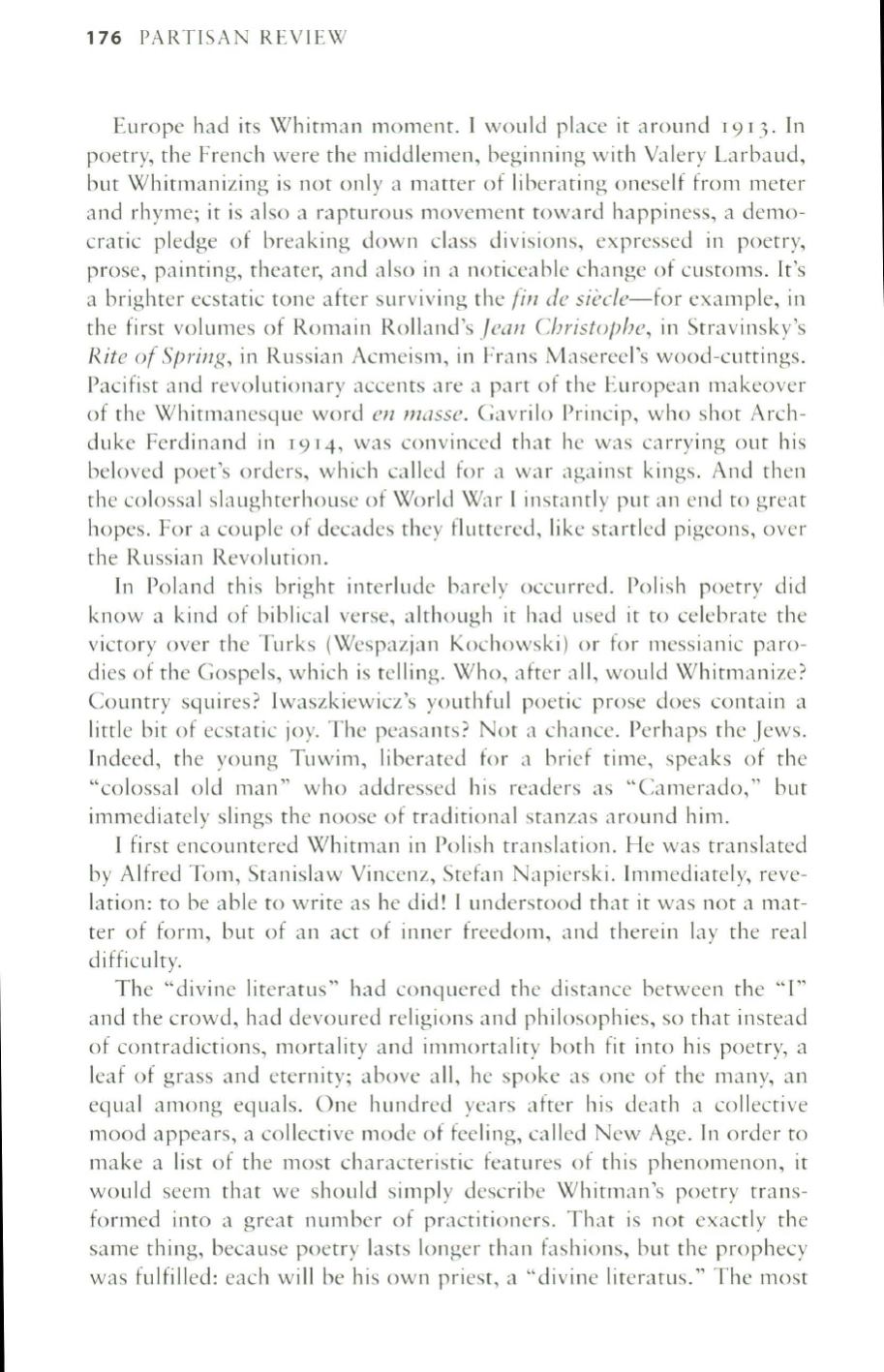
176
PARTISAN REVIEW
Europe had its Whitman moment. I would place it around
'9'3.
In
poetry, the French were the middlemen, beginning with Valery Larbaud,
but Whitmanizing is not only a matter of liberating oneself from meter
and rhyme; it is also a rapturous movement toward happiness, a demo–
cratic pledge of breaking down class divisions, expressed in poetry,
prose, painting, theater, and also in a noticeable change of customs. It's
a brighter ecstatic tone after surviving the
fill de siecle-for
example, in
the first volumes of Romain Rolland's
Jeall Christophe,
in Stravinsky's
Rite of Spring,
in Russian Acmeism, in Frans Masereel's wood-cuttings.
Pacifist and revolutionary accents are a part of the European makeover
of the Whitmanesque word
en
masse.
Gavrilo Princip, who shot Arch–
duke Ferdinand in
'9
'4,
was convinced that he was carrying out his
beloved poet's orders, which called for a war against kings. And then
the colossal slaughterhouse of World War I instantly put an end to great
hopes. For a couple of decades they fluttered, like startled pigeons, over
the Russian Revolution.
In Poland this bright interlude barely occulTed. Polish poetry did
know a kind of biblical verse, although it had used it to celebrate the
victory over the Turks (Wespazjan Kochowski) or for messianic paro–
dies of the Gospels, which is telling. Who, after all, would Whitmanize?
Country squires? Iwaszkiewicz's youthful poetic prose does contain a
little bit of ecstatic joy. The peasants? Not a chance. Perhaps the Jews.
Indeed, the young Tuwim, liberated for a brief time, speaks of the
"colossal old man" who addressed his readers as "Camerado," but
immediately slings the noose of traditional stanzas around him.
I first encountered Whitman in Polish translation. He was translated
by Alfred Tom, Stanislaw Vincenz, Stefan Napierski. Immediately, reve–
lation: to be able to write as he did! I understood that it was not a mat–
ter of form, but of an act of inner freedom, and therein lay the real
difficulty.
The "divine literatus" had conquered the distance between the "I"
and the crowd, had devoured religions and philosophies, so that instead
of contradictions, mortality and immortality both fit into his poetry, a
leaf of grass and eternity; above all, he spoke as one of the many, an
equal among equals. One hundred years after his death a collective
mood appears, a collective mode of feeling, called New Age. In order to
make a list of the most characteristic features of this phenomenon, it
would seem that we should simply describe Whitman's poetry trans–
formed into a great number of practitioners. That is not exactly the
same thing, because poetry lasts longer than fashions, but the prophecy
was fulfilled: each will be his own priest, a "divine literatus." The most


